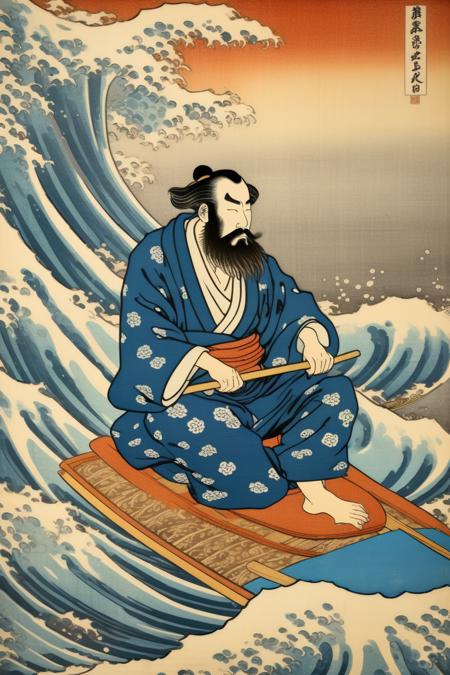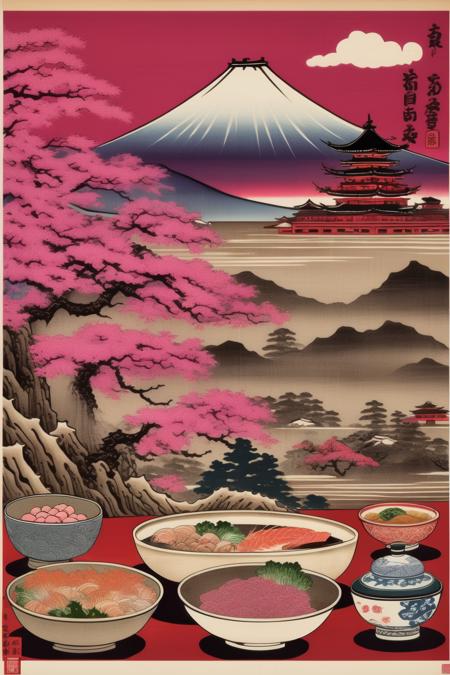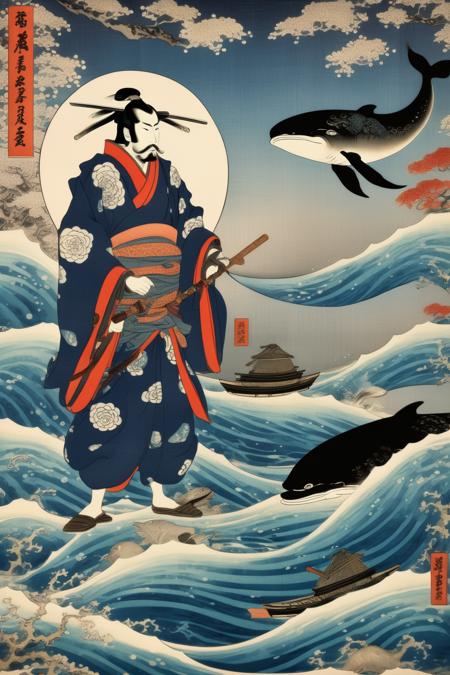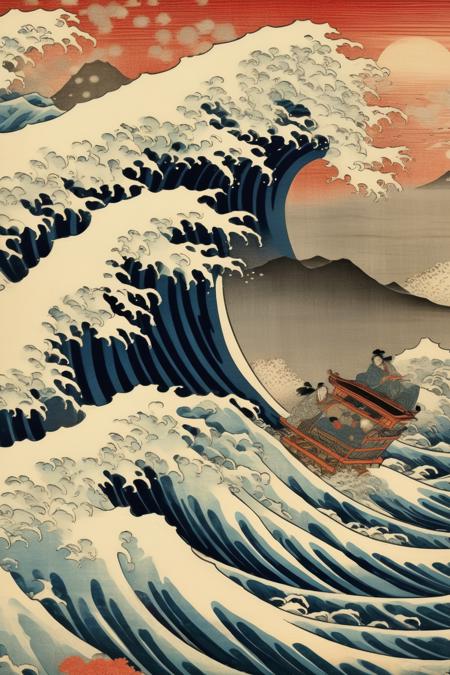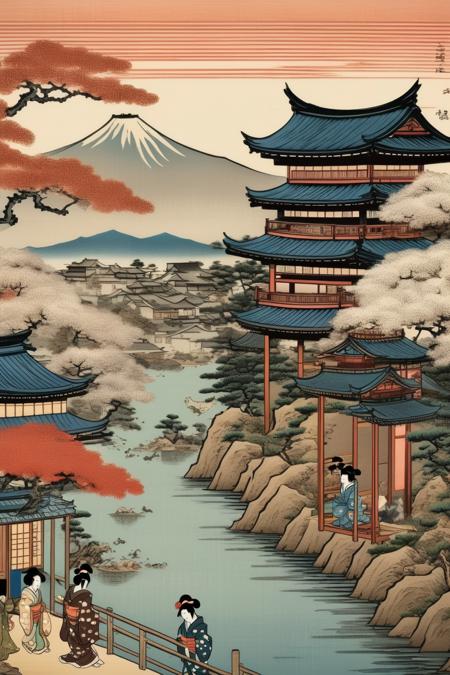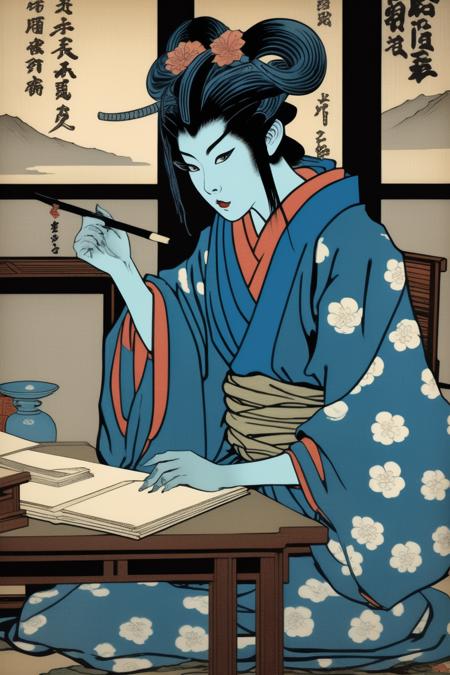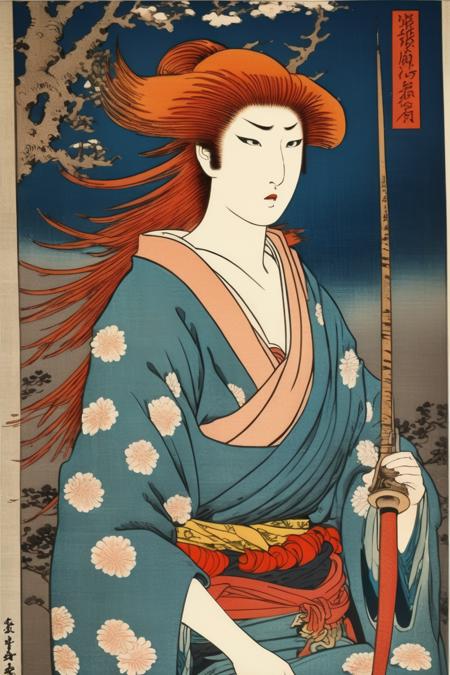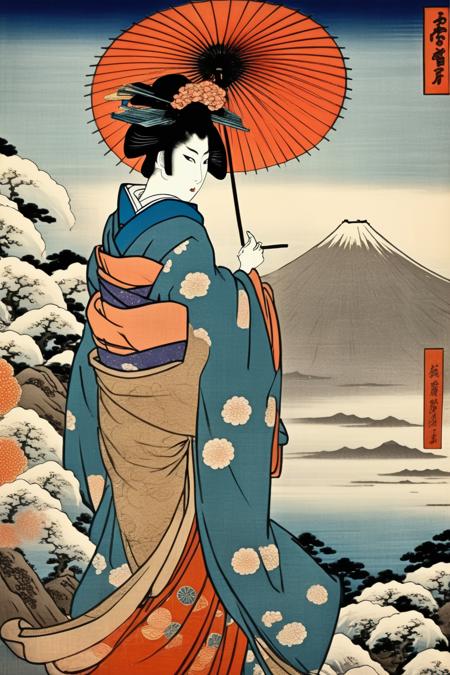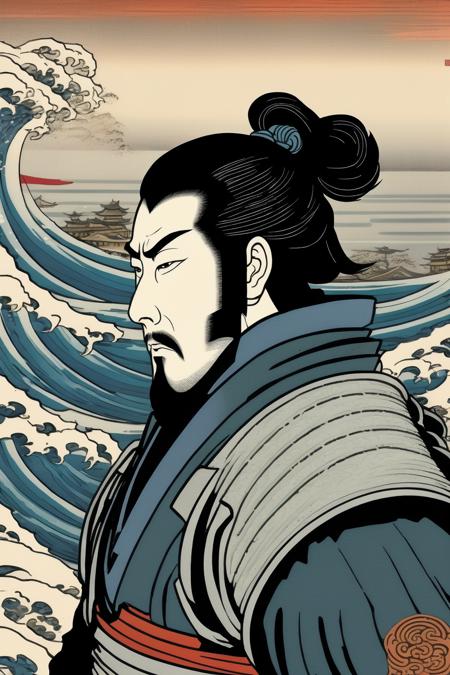Ukiyo-e Art (CivitAI)
Ukiyo-e Art - bearded man surfing woodblock print style of hokusai fine art style of kanagawa painting /relax
Ukiyo-e is a traditional Japanese art form that emerged during the Edo period (17th to 19th centuries). The term "ukiyo-e" translates to "pictures of the floating world" and refers to a genre of woodblock prints and paintings that depicted scenes from the everyday lives of common people, landscapes, historical events, and kabuki theater.
Ukiyo-e artists were skilled in the techniques of woodblock printing, which involved carving intricate designs on wooden blocks and using them to create multiple color impressions on paper. The prints were often mass-produced, making them affordable and accessible to a wide audience.
The subjects of ukiyo-e prints varied widely, but they commonly featured elegant courtesans, actors, landscapes, and scenes from daily life in Edo (now Tokyo). The prints captured fleeting moments and celebrated the transient nature of life, embodying the philosophy of "ukiyo" or the transient world.
Prominent ukiyo-e artists include Kitagawa Utamaro, Katsushika Hokusai, and Utagawa Hiroshige, whose works have become iconic representations of Japanese art. These artists displayed mastery in composition, color, and capturing intricate details, creating images that are both visually stunning and culturally significant.
Ukiyo-e art played a crucial role in shaping Western art movements such as Impressionism and Post-Impressionism, influencing artists like Vincent van Gogh and Claude Monet. Today, ukiyo-e prints are highly sought after by collectors and continue to be admired for their beauty, craftsmanship, and their ability to provide insights into Japan's rich cultural heritage.
Image examples for the model:
Ukiyo-e Art - An image representing 'The History and Traditions of Japanese Cuisine'. Japanese woodblock prints Style. The image should be imbued with an atmospheric quality that evokes the timeless traditions and the deep history that inform Japanese culinary arts. The dominant color of the design should be Viva Magenta (Pantone 18-1750). Please ensure the design captures the essence of Japan's gastronomic legacy in a sophisticated and evocative way
Ukiyo-e Art - under the deep blue sea, a japanese samurai, aisolated nature medicine and a whale
Ukiyo-e Art - Using your artistic prowess and digital tools, craft a composition that embodies the charm and aesthetics of Ukiyo-e or Emakimono. Imagine a scene from Edo, the bustling capital city of Japan during the 17th to 19th centuries, and depict it with the exquisite detail, perspective, and delicate coloring reminiscent of traditional Japanese woodblock prints or hand-painted scrolls.
Ukiyo-e Art - young adult tiefling woman with blue skin, wearing traditional Japanese fine clothes, sitting at a desk in a candlelit stone library background, muted colors, in the style of ukiyo-e woodblock print style
Ukiyo-e Art - 19th century japanese woodblock print artstyle hiroshige portrait of greek goddess artemis huntress wildlife fierce woman with red hair
Ukiyo-e Art - ukiyo-e Japanese isometric woodblock painting of architecture with tatami, screens, beams, and arches with women and animals and sky
Ukiyo-e Art - Geisha Portrait, Engraving, Japanese Fashion, Umbrella, Hokusai's Panoramic View of Fuji, 1830s, in the Style of Utagawa Kuniyoshi
Ukiyo-e Art - Portrait noble faced ronin samurai black hair wearing armor looking towards the horizon waves in the backround Illustrated
- Downloads last month
- 388
Model tree for KappaNeuro/ukiyo-e-art
Base model
stabilityai/stable-diffusion-xl-base-1.0